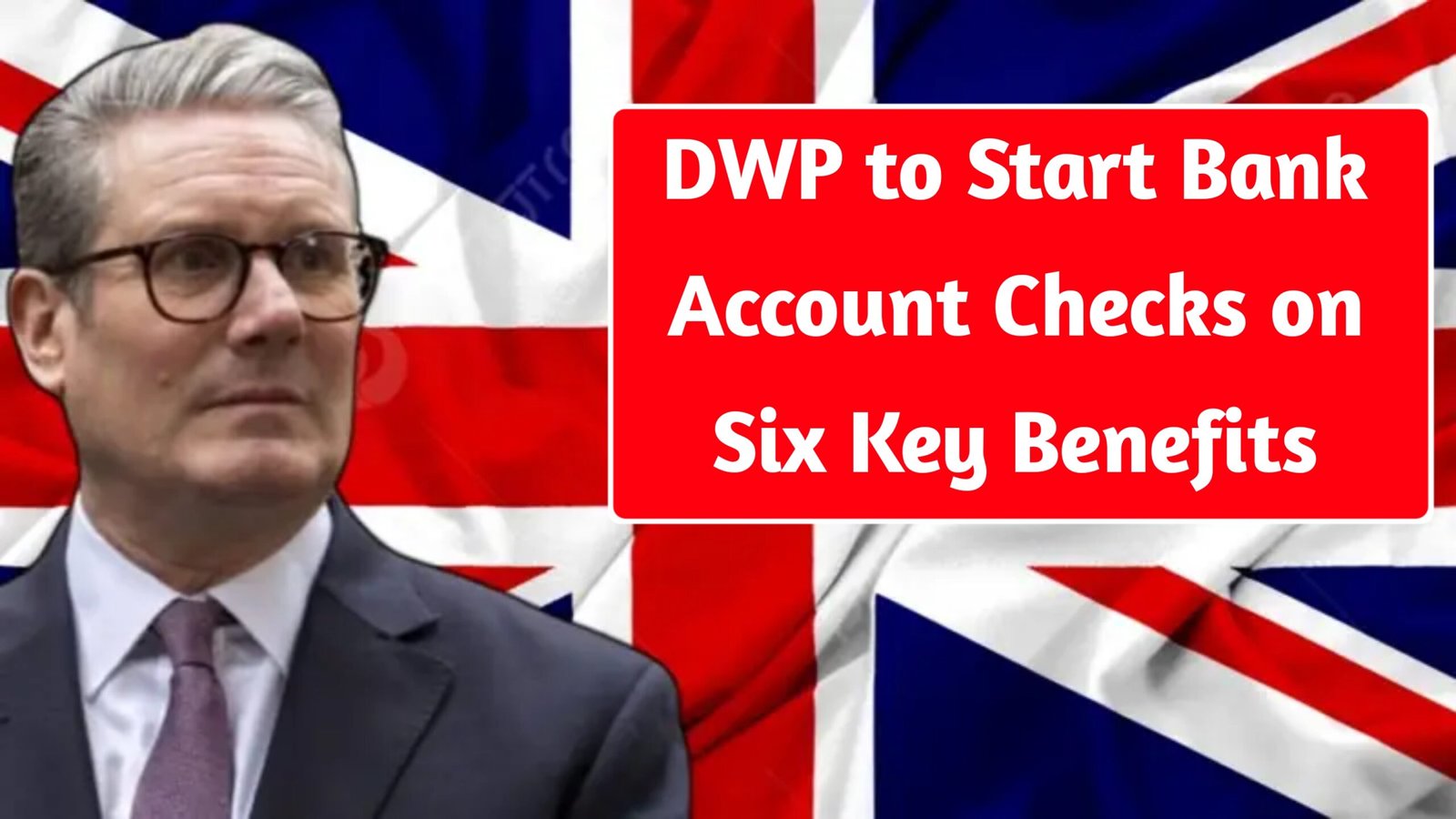The Department for Work and Pensions (DWP) has announced a significant update regarding the administration of six major benefits in the UK. From this year onwards, bank account checks will become a crucial part of the process for benefit recipients. This move aims to improve accuracy, prevent fraud, and ensure that public funds are distributed fairly. Understanding these changes is vital for anyone receiving benefits, as it could impact eligibility and payment timelines.
Which Benefits Are Affected
The DWP’s new bank account verification process will target six key benefits. These benefits include Universal Credit, Personal Independence Payment (PIP), Jobseeker’s Allowance (JSA), Employment and Support Allowance (ESA), Carer’s Allowance, and Pension Credit. These benefits cover a large portion of the UK population relying on financial support for living costs, healthcare, or retirement.
Why the DWP Is Introducing Bank Account Checks
The primary goal of this initiative is to reduce fraud and ensure that benefits are paid to the right people. Over the years, fraudulent claims and administrative errors have cost the UK taxpayer millions of pounds. By verifying bank accounts directly, the DWP can cross-check payment information, confirm that payments are reaching legitimate recipients, and quickly detect suspicious activity.
How the Checks Will Work
The process involves verifying bank account details provided during benefit applications. The DWP will request confirmation of account ownership, including account numbers and sort codes. In some cases, applicants may need to provide bank statements or other documentation. This system allows the DWP to automatically match account information with existing records, improving efficiency and accuracy.
Impact on Benefit Recipients
For most recipients, this change will mean minimal disruption. Those who have their bank account details up to date are unlikely to experience delays. However, individuals who recently changed bank accounts, use multiple accounts, or rely on third-party payments should pay extra attention. Failing to provide accurate details may lead to temporary suspension of payments until verification is complete.
Steps Recipients Should Take
- Ensure all bank account details are current and accurate in your DWP records.
- Keep recent bank statements handy in case verification is requested.
- Respond promptly to any DWP communication regarding bank checks.
- Notify the DWP of any changes in account ownership or closure immediately.
Security Measures
The DWP has emphasized that the bank account checks will follow strict data protection protocols. Personal and financial information will be handled securely, and only authorised personnel will have access to sensitive data. The process complies with GDPR regulations, ensuring the privacy of recipients is maintained.
Possible Challenges
While this update is designed to streamline payments, some recipients may face challenges. For example, people with joint accounts, trust accounts, or accounts managed by third parties may need extra documentation. Additionally, delays can occur if the DWP requires manual verification of unusual account activity or discrepancies in records.
Benefits for the Public
By introducing bank account checks, the DWP aims to protect public funds, reduce errors, and improve overall service delivery. Taxpayers can be confident that benefits are distributed appropriately, while recipients are assured that their payments are accurate and timely. Over time, this system could lead to faster processing of applications and fewer cases of overpayment or underpayment.
Tips for Avoiding Payment Delays
- Double-check all account numbers and sort codes for accuracy.
- Avoid using temporary or unverified accounts for benefit payments.
- Maintain updated contact information with the DWP to receive notifications promptly.
- Keep documentation ready for quick submission if requested.
How to Contact the DWP
The DWP provides several channels for assistance. Recipients can call the official helpline, use online portals, or visit local offices for support. It’s important to use official contact methods to avoid scams or misinformation.
Frequently Asked Questions
Will this affect everyone receiving benefits?
Not all recipients will experience changes. The checks mainly impact those whose bank account details are new, outdated, or require verification.
What if my account is under a different name?
You may need to provide additional documentation to prove account ownership. This ensures payments are made to the correct individual.
Are there any fees involved?
No, the bank account checks are part of the DWP process and do not involve any charges to recipients.
How long will the verification take?
Most bank checks are completed quickly, often within a few days. Complex cases may take longer depending on the need for manual review.
Preparing for the Change
Beneficiaries are encouraged to review their current bank information and ensure it matches the records held by the DWP. Regularly checking accounts and responding to DWP notifications can prevent potential delays. It’s also advisable to keep track of any letters or emails from the DWP regarding verification.
Conclusion
The DWP’s introduction of bank account checks on six key benefits marks a step towards greater accountability and efficiency in the UK’s benefits system. While some recipients may face minor adjustments, the overall impact is positive, ensuring that funds reach the people who need them most. Staying informed, updating records, and following DWP guidance are the best ways for recipients to navigate these changes smoothly.
This initiative underscores the DWP’s commitment to safeguarding public resources while supporting those reliant on benefits. UK citizens receiving these benefits should view this update as an opportunity to secure their payments and avoid any interruptions in financial support.
